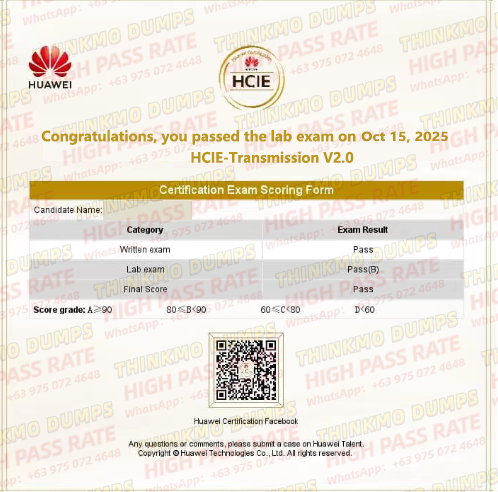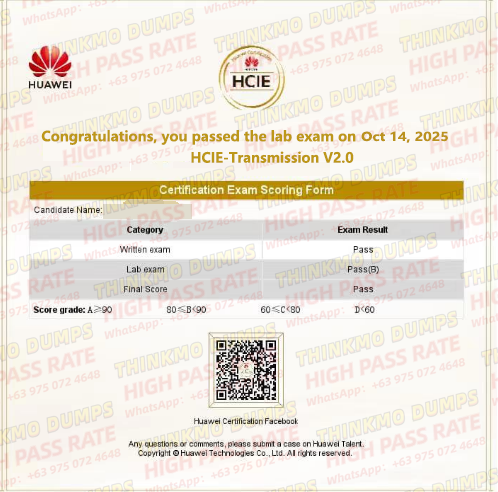Great News: Huawei AI and Storage Certification Exams Achieve Outstanding Results
Recently,
another group of students have brought exciting news from Huawei's core
IT certification assessments. Covering two core technical
fields—Artificial Intelligence (AI) and Storage—across the expert-level
HCIE, senior engineer-level HCIP, and entry-level HCIA certifications,
all subjects have achieved excellent results. The overall pass rate has
increased significantly compared to previous sessions, fully
demonstrating the students’ solid technical foundation and the
remarkable effectiveness of their targeted exam preparation.

The students delivered an especially outstanding performance in the Huawei HCIE-Artificial Intelligence (HCIE-AI) certification exam. As the top qualification certification in the AI field, this certification consists of three parts: a written test, a lab exam, and a comprehensive interview. It focuses on assessing advanced capabilities such as AI model design and optimization in complex scenarios, large-scale dataset processing, and industry solution implementation, placing extremely high demands on comprehensive technical application and innovative thinking. During the assessment, the students not only efficiently completed core module tasks including deep learning model training and tuning, computer vision project deployment, and natural language processing system development to accurately meet the business needs of enterprise-level AI applications, but also proposed innovative solutions for key issues such as AI model generalization improvement and real-time data processing latency optimization. This performance, which combines technical depth and practical innovation, fully demonstrated their expert-level technical literacy and problem-solving abilities. In the end, all participating students successfully passed the full certification process.

The Huawei HCIP-Storage certification exam also achieved remarkable results. Focusing on core storage technologies, this certification covers practical skills such as enterprise-level storage architecture design, distributed storage deployment and operation, data backup and disaster recovery, and storage security policy configuration, which are highly aligned with practical workplace application scenarios in key industries such as finance, medical care, and manufacturing. In the exam, the students had a solid grasp of core modules including SAN storage network construction, OceanStor storage system configuration, and data lifecycle management. They were able to accurately address the technical requirements of typical scenarios such as multi-site storage resource scheduling, high-reliability data protection, and massive data storage performance optimization, with a pass rate far exceeding the industry average. This result fully proves that the students have acquired the core capabilities to be competent in enterprise-level storage system planning, deployment, operation and maintenance, and optimization.



